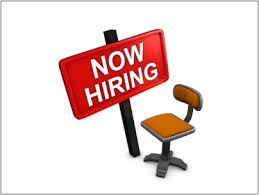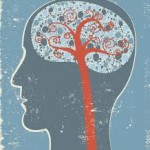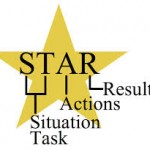 From behavioral interviewing techniques to psychometric testing, managers have access to a range of tools to make the staff hiring process foolproof and reduce the possibility of the wrong hire. The reality is that no process can make the hiring completely foolproof. But it is possible to make the process almost foolproof by using a tried and tested approach to effective hiring…
From behavioral interviewing techniques to psychometric testing, managers have access to a range of tools to make the staff hiring process foolproof and reduce the possibility of the wrong hire. The reality is that no process can make the hiring completely foolproof. But it is possible to make the process almost foolproof by using a tried and tested approach to effective hiring…
Tag: hr
Based on an extract from a Business Insider web article. The original article was written by Alison Griswold and Vivian Giang.
 Smart and successful entrepreneurs including the likes of Richard Branson of Virgin and Tony Hsieh of Zappos know that interview questions like “What’s your biggest strength?” and “What’s your biggest weakness?” don’t produce revealing answers. That’s why they steer clear of these cliché queries and instead ask more meaningful ones. Many executives have their one favorite go-to question that reveals everything they need to know about a job candidate. Here is a list of the top 10 questions…
Smart and successful entrepreneurs including the likes of Richard Branson of Virgin and Tony Hsieh of Zappos know that interview questions like “What’s your biggest strength?” and “What’s your biggest weakness?” don’t produce revealing answers. That’s why they steer clear of these cliché queries and instead ask more meaningful ones. Many executives have their one favorite go-to question that reveals everything they need to know about a job candidate. Here is a list of the top 10 questions…
 Read any book about organizational success – whether in a multinational or a small business – and the key to organizational success is related to something business-like: leadership, sales, customer care, profitability, etc. Any reference to recreation and fun is almost always as an add-on. For example, a company retreat with balloons and treasure hunts once a year or a sports day or a company lunch once a quarter. HR managers lecture line managers on the need to have such events so their fun-starved staff can get a chance to “loosen up”. Yet staff engagement remains low….
Read any book about organizational success – whether in a multinational or a small business – and the key to organizational success is related to something business-like: leadership, sales, customer care, profitability, etc. Any reference to recreation and fun is almost always as an add-on. For example, a company retreat with balloons and treasure hunts once a year or a sports day or a company lunch once a quarter. HR managers lecture line managers on the need to have such events so their fun-starved staff can get a chance to “loosen up”. Yet staff engagement remains low….
The SCARF Model was originally proposed by David Rock of the Neuro-Leadership Institute and has been acclaimed as one of the best and original ideas in management over the last 15 years.
 In a world of increasing inter-connectedness and rapid change, there is a growing need to improve the way people work together. The study of the brain is starting to provide some key insights that can be applied in the real world – for example in the work place. Social neuroscience explores the biological foundations of the way humans relate to each other and to themselves in terms of emotional regulation, attitudes, stereotyping, empathy, status, fairness, collaboration, persuasion, morality, compassion, deception and trust…
In a world of increasing inter-connectedness and rapid change, there is a growing need to improve the way people work together. The study of the brain is starting to provide some key insights that can be applied in the real world – for example in the work place. Social neuroscience explores the biological foundations of the way humans relate to each other and to themselves in terms of emotional regulation, attitudes, stereotyping, empathy, status, fairness, collaboration, persuasion, morality, compassion, deception and trust…
 In a behavioral interview, it’s much more difficult for an applicant to “make up” responses that are untrue to his/her character. The behavioral interviewer typically will pick the applicant’s narrative to try to get an understanding of the applicant’s specific behavior(s). The interviewer will probe further for more depth or detail such as “Tell me more about your meeting with that difficult colleague,” or “Walk me through the decision making process you used”…
In a behavioral interview, it’s much more difficult for an applicant to “make up” responses that are untrue to his/her character. The behavioral interviewer typically will pick the applicant’s narrative to try to get an understanding of the applicant’s specific behavior(s). The interviewer will probe further for more depth or detail such as “Tell me more about your meeting with that difficult colleague,” or “Walk me through the decision making process you used”…

Recent Comments